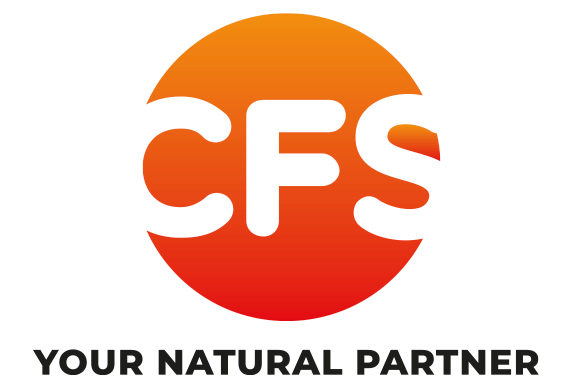
The benefits of rosemary as a natural antioxidant
Rosemary is a plant that humans have been using for thousands of years. It is especially appreciated for the variety of uses it guarantees: rich in essential oils such as cineole, α-pinene and camphor, it is used both as an ingredient when cooking and in herbal medicine, thanks to its antioxidant, digestive and hepatic characteristics. Rosemary is also one of the most used ingredients in the food supplement industry, in the food industry (as E392 additive) and in pet food, let alone in countless cosmetic formulations.
Being a potent antioxidant is one of rosemary’s key features, especially when preserving oils and fats, meat, poultry and fish and pet food. This characteristic makes this herb one of the most interesting ingredients in the food and pet food industry, especially because of the shelf-life extension it is able to guarantee.
In a historical period where food waste has reached its highest level, it is crucial that such growing concern is managed carefully and that food preparations can last longer while maintaining their quality and healthiness intact.
At the same time, food producers must consider a shift in mentality: their customers are evolving and paying more and more attention to the health aspect of what they eat and drink.
The transition to natural antioxidants is in full swing
Now more than ever, it is apparent that consumers have become increasingly attentive to the quality of their food. Therefore, the tendency to leave behind artificial preservatives is progressively increasing.
In this scenario, manufacturers are consulting spices and herbs databases looking for preservatives that can answer this increasing market demand. Rosemary certainly makes it to the top of the list, given its ability to act as a powerful natural preservative. Even in general terms, reading the label of baked goods and cured meat is enough to find out that producers are more and more turning to herbs such as rosemary, ginger, garlic, cinnamon and cloves to increase the durability of their preparations.
When it comes to rosemary, it has to be remembered that this plant contains a high content (?)of carnosic acid, a powerful natural antioxidant, and that rosemary extract and tocopherols (known by consumers as Vitamin E) will progressively replace artificial antioxidants that have been widespread on the market up until now: butylated hydroxyanisole (BHA) and tert-butylhydroquinone (TBHQ).
The term that is finding its place in chemical lingo is “bio-conservation”, a new-generation type of food preservation that favours natural methods and ingredients in the manufacturing and conservation of foods. The long-term goal is, of course, to replace (at least partly) synthetic preservatives or, at the very least, to reduce their use.
In general terms, bio-conservation uses mainly plant extracts or live microorganisms such as lactic bacteria and plant-based oils that are generally recognized as safe for human health and whose knowledge results from millennia of use by humans.
An added bonus of natural preservatives such as rosemary is their beneficial effect on human well-being. They are considered “food-grade”, which means that they are seen as part of the food itself instead of an artificial component that was later included as an additive.
Rosemary extract is well known for its antioxidant effect. The phenols present in its leaves (rosmarinic acid, carnosic acid and carnosol) increase the activity of superoxide dismutase, an enzyme involved in the inactivation of free radicals.
At the same time, phenols also fortify Vitamin E’s neutralizing effect. That is why rosemary’s use has been significantly increasing in the food industry: its ability to act as a preservative and contrast oxidation is excellent.
Given that oxidation is one of the leading causes of deterioration in foods that contain lipid components, rosemary extract is used as a natural food additive for preserved meat and baked goods (but also as an ingredient for cosmetic products aimed at cleansing, purifying and anti?-aging the skin) precisely because of its incredible antioxidant properties. As a matter of fact, this extract is believed to be the most abundant natural source of carnosic acid, a potent antioxidant component in itself.
The benefits of using rosemary as a natural antioxidant are abundant:
- It effectively limits and delays the lipid degradation of food and pet food, prolonging their shelf-life
- It decreases the action of oxidation catalysts such as oxygen, light and temperature
- It is very versatile and can be used as a natural antioxidant for several different foods, such as meat, poultry, fish and baked goods
- It does not alter or decrease the quality of the food
- It does not produce any off-flavour in the food
- It prevents the development of foul odours and rancidity
- It compensates for the lack of stability caused by unsaturated fats
- It stabilizes nuts and seeds rich in polyunsaturated fatty acids (PUFAs)
In conclusion, one single plant – or, more precisely, its extract – can deliver a series of added values to the food (and pet food) industry.
However, it has to be pointed out that rosemary extract can – and is – also used in synergy with other natural antioxidants such as acerola extract (for example in fresh ground meat, to retain the colour without altering the taste and odour of the meat) or tocopherol extract (for outstanding results in premium pet food, to retain the palatability and protect the vitamins).


